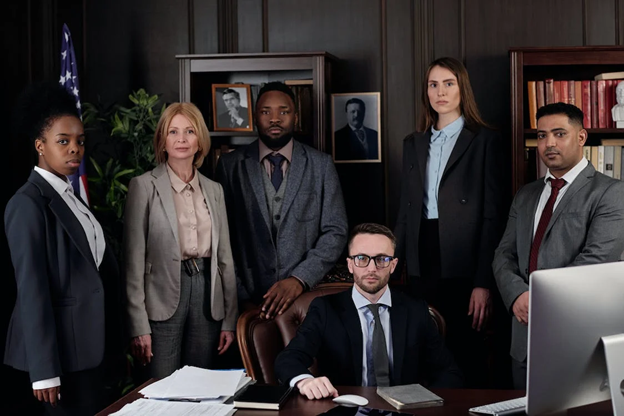Now Reading: Battlefield of Rights: Trial Lawyers Defending Your Cause
-
01
Battlefield of Rights: Trial Lawyers Defending Your Cause

Battlefield of Rights: Trial Lawyers Defending Your Cause
When legal battles loom large and the need for strong representation arises, trial lawyers step onto the battlefield of rights to defend their clients’ causes. These legal professionals, armed with expertise, experience, and unwavering dedication, fight for justice in courtrooms across the nation. In this comprehensive article, we delve into the critical role of trial lawyers in upholding the rights of individuals and advocating for their causes. With the support of firms like Madia Law, individuals can navigate complex legal challenges with confidence, knowing that their rights are being fiercely defended.
Understanding the Significance of Trial Lawyers
Importance of Trial Lawyers
Trial lawyers are the frontline warriors of the legal system, representing clients in court and advocating for their interests. Whether it’s seeking compensation for personal injuries, defending against criminal charges, or litigating civil disputes, trial lawyers play an indispensable role in ensuring that justice is served. They bring cases to trial, present evidence, cross-examine witnesses, and make compelling arguments to secure favorable outcomes for their clients.
Expertise in Litigation
Trial lawyers specialize in litigation, the process of resolving disputes through the court system. Their expertise encompasses understanding legal procedures, rules of evidence, and strategies for presenting a compelling case. Trial lawyers are skilled storytellers who use evidence and legal arguments to construct narratives that persuade judges and juries.
The Role of Trial Lawyers in Legal Representation
Advocacy for Rights and Justice
At the heart of trial lawyers’ role is their commitment to advocating for rights and justice. Whether representing individuals, businesses, or organizations, trial lawyers passionately pursue their clients’ causes and fight for favorable outcomes. They uphold the principle that every person has the right to be heard, to present evidence, and to have their case decided fairly by an impartial tribunal.
Defending Against Legal Challenges
Trial lawyers are not only advocates for plaintiffs; they also play a crucial role in defending against legal challenges. Criminal defense lawyers, for example, defend individuals accused of crimes, ensuring their rights are protected and that they receive a fair trial. Trial lawyers meticulously analyze evidence, challenge witnesses, and make legal arguments to secure acquittals or reduced charges.
Navigating the Complexities of Litigation
Preparation and Case Analysis
Trial lawyers invest significant time and effort in preparing for trials. This involves in-depth case analysis, reviewing evidence, identifying strengths and weaknesses, and developing a strategy to present the most compelling case possible. Preparation is key to anticipating the arguments of opposing counsel and ensuring that clients’ interests are effectively represented.
Evidence Presentation and Cross-Examination
During the trial, trial lawyers present evidence that supports their clients’ positions. This evidence can include documents, photographs, expert testimony, and witness accounts. Trial lawyers also engage in cross-examination, a skillful technique where they question opposing witnesses to challenge their credibility and uncover inconsistencies. A cross-examination is an essential tool for testing the accuracy of the evidence presented by the other party.
Strategies Employed by Trial Lawyers
Developing Persuasive Arguments
Trial lawyers are adept at developing persuasive arguments that resonate with judges and jurors. They weave together evidence, legal principles, and compelling narratives to create a convincing case for their clients’ causes. By appealing to reason, emotion, and logic, trial lawyers aim to sway the decision-makers in their client’s favor.
Understanding the Jury
In cases that go to trial, the jury plays a critical role in reaching a verdict. Trial lawyers understand the psychology of jurors and tailor their arguments accordingly. They craft messages that resonate with the jury’s values, beliefs, and experiences, ultimately influencing their decision-making process.
Trial Lawyers’ Role in Settlements and Verdicts
Negotiating Settlements
Trial lawyers are skilled negotiators who often engage in settlement discussions before going to trial. They assess the strengths and weaknesses of their case, communicate with opposing counsel, and negotiate favorable settlements that meet their client’s objectives. While settlement is often preferred for its efficiency, trial lawyers ensure that their clients are offered fair compensation.
Presenting the Case in Court
When settlements cannot be reached, trial lawyers take their clients’ cases to court. They meticulously prepare witnesses, exhibits, and arguments for trial. In the courtroom, trial lawyers present the evidence, cross-examine witnesses, and make persuasive arguments to convince judges or juries of their client’s rights and causes.
Conclusion
Trial lawyers are the champions of justice who defend individuals’ causes on the battlefield of rights. Their expertise, dedication, and unwavering commitment to upholding the law ensure that justice is served, rights are protected, and cases are resolved fairly. With legal professionals like those from Madia Law in their corner, individuals facing legal challenges can trust that their rights will be fiercely defended and that their voices will be heard in courtrooms across the nation.
Trial lawyers embody the spirit of advocacy, using their skills to present evidence, challenge arguments, and persuade decision-makers. Their role extends beyond legal technicalities; they are storytellers who convey the narratives of their client’s cases to judges, juries, and opposing parties. Through their tireless efforts and strategic approaches, trial lawyers ensure that the principles of justice are upheld, rights are respected, and individuals receive the fair treatment they deserve.

With a law degree under his belt, Mark Scott understood very early that law communication was a relatively neglected area. He decided to help people by “translating” the language and offering information and advice in a clear, useful, and actionable manner. For this reason, instead of finding him in court, you will most likely find his name online, where he is very active and thriving as a legal columnist. His part of making the world a better place is to make the law a less convoluted maze. He aims to make it easier for people to understand when and how to seek legal counsel, how to proceed in a significant number of legal matters, and to find the proper resources so they can stand up for their rights.










